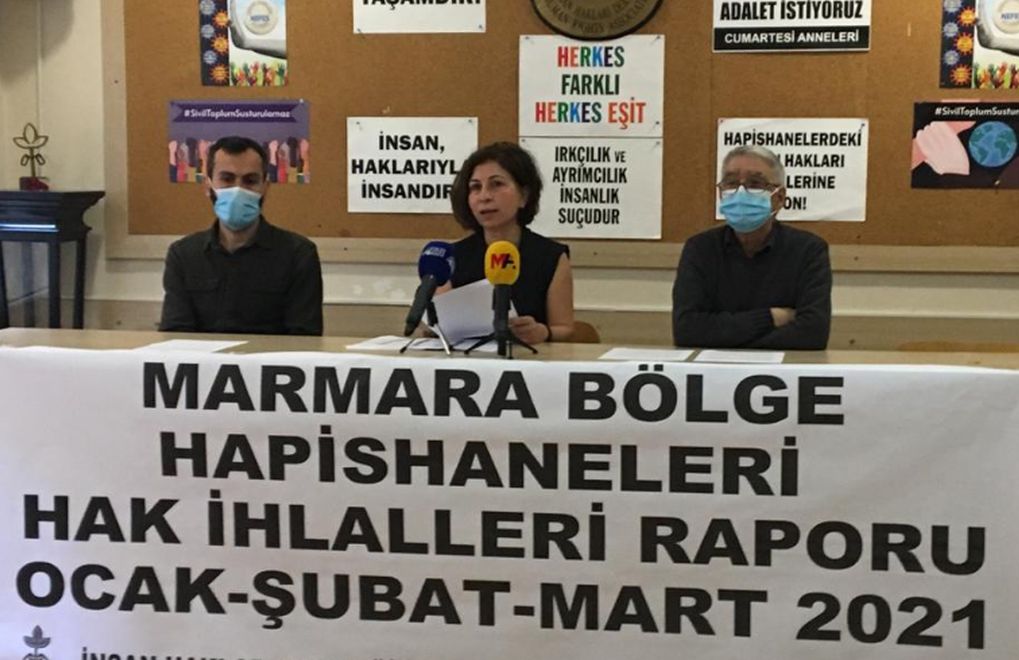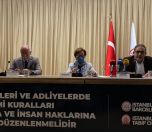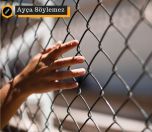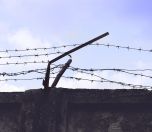* Photo: İHD İstanbul Branch
Click to read the article in Turkish / Kurdish
The Prison Commission of the Human Rights Association (İHD) İstanbul Branch has released its quarterly report on the violations of rights committed in the prisons of the Marmara region, including İstanbul.
The report has been prepared based on the applications made to the İHD İstanbul Branch in the first three months of 2021 and the cases reported in the press and compiled by the İHD İstanbul Branch.
1,233 violations detected in 3 months
In the period of January-February-March 2021, a total of 78 applications were made to the association from the following 21 prisons: Silivri Penal Institution Campus Prisons, Tekirdağ No. 1 and 2 Type F Closed Prison, Edirne Type F Closed Prison, Kandıra Type F Closed Prison, Metris No. 2 Closed Prison, İzmir Aliağa No. 2 Closed Prison, Bakırköy Women's Closed Prison, Balıkesir Bandırma No. 1 Type T Closed Prison, Çorum Type L Closed Prison, Gebze Women's Closed Prison, Akhisar Manisa Type T Closed Prison, Elazığ High-Security Type T Closed Prison, Şakran Women's Closed Prison, Erzincan Type T Closed Prison, Denizli Type T Closed Prison, Antalya Type E Closed Prison, Bolu Type F Closed Prison, Maltepe No. 2 Closed Prison, İmralı Prison, Greece and Qatar Central Prison.
While seven applications were made by women, 71 were made by men. Eight applications were made by ordinary prisoners and the remaining 70 were made by political prisoners. By scanning the news, the Prison Commission of the association detected violations in 83 other cases.
According to the report, 1,233 violations of rights in total were detected in the first three months of 2021.
COVID-19 violations
Some highlights from the 55-page report are as follows:
* Torture and ill treatment of prisoners through physical attack, threat, battery, naked search, ward searche in raids, violations of right to healthcare and treatment, arbitrary bans and practices have continued.
* All social rights have been abolished in prisons under the pretext of the outbreak; isolation and segregation have intensified.
* As adequate measures have not been taken, the number of coronavirus cases has increased; the prisoners who tested positive for COVID-19 and the ones who did not have the virus were put in the same wards, which has paved the way for the spread of the disease.
* There has been an increase in complaints about humiliating attitudes incompatible with human dignity taken by prison administrations and wardens towards the prisoners who been diagnosed with COVID-19.
* During the COVID-19 outbreak, the problems in transfers to hospitals and access to treatment have grown due to the cancellation of appointments, treatment in handcuffs and negative quarantine practices.
* In several prisons, prisoners are not provided with masks, disinfectants, soaps, cleaning and hygiene products and/or they are adequately provided with these materials; especially the hygiene products are given to prisoners after they are diluted with water.
* COVID-19 patients are not provided with adequate nutrients.
* Wardens do not use masks or gloves while searching wards and prisoners, they do not keep their distance. The prisoners who warn them are given solitary confinement following disciplinary proceedings.
* The pandemic has been a process when isolation has taken a more common and severe form; while the right to have a chat and do sports, which enable prisoners to communicate with others, has been totally restricted, their connection with the outside world, including their connection with their families and relatives, has been restricted with various tools and practices to a considerable extent. (AS/SD)
* Click here to read the full report (in Turkish)










